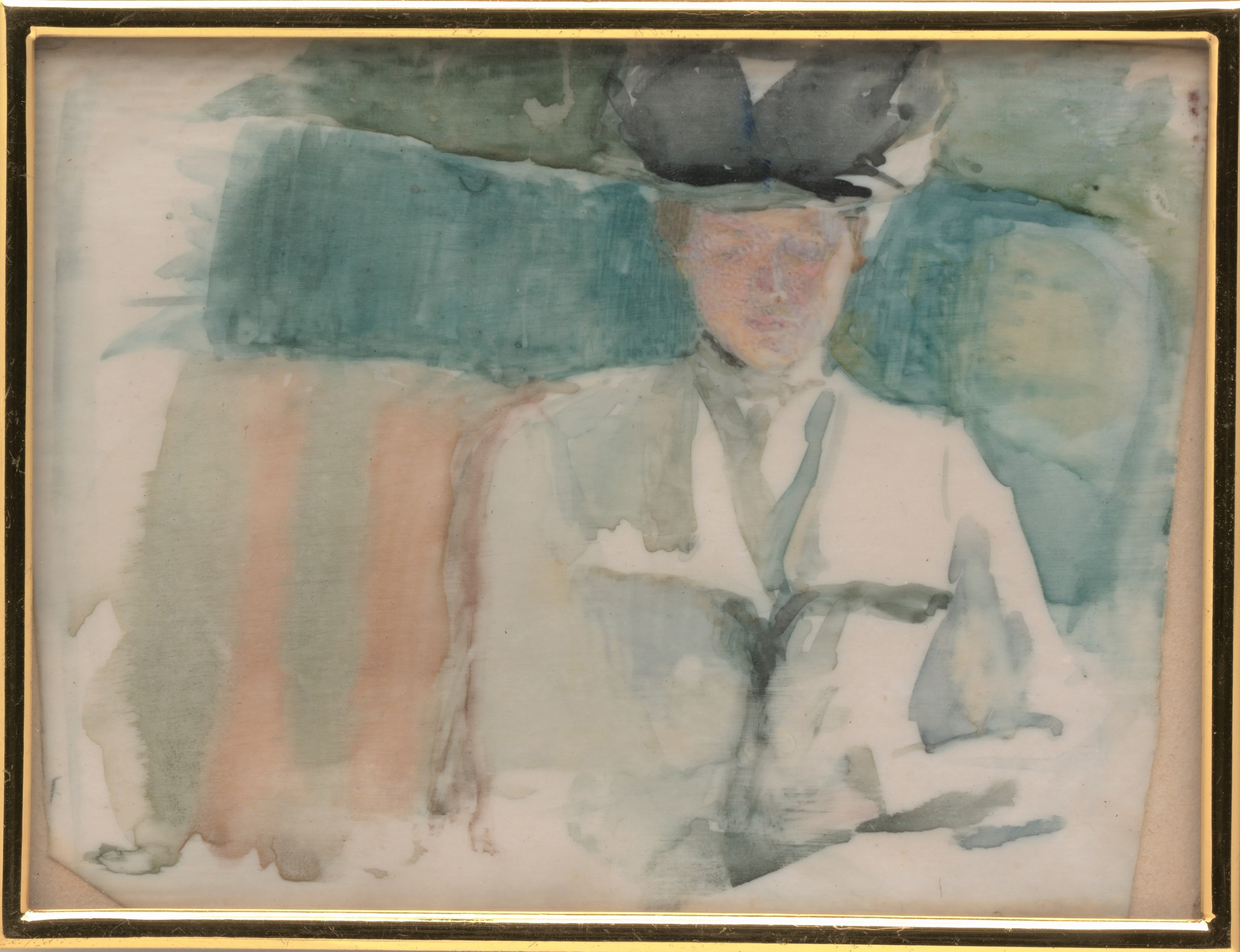
Portrait of a Lady, by Theodora W. Thayer, c. 1898. The Metropolitan Museum of Art, Bequest of Mary McMillan, 1956.
• On the court case that made it possible for young women to go to Stuyvesant High School. (NewYorker.com)
• “Reading The Portrait of a Lady, I realized that it would be radical if we could learn to see male self-involvement as actively unattractive.” (The Baffler website)
• The appeal of unfinished paintings: “Of course Adoration of the Magi would be a better painting if it were done. But would it be as interesting?” (Popula)
• Understanding authors, or trying to use them to understand ourselves, can be difficult: “It’s a fruitless enterprise, of course. I’ll never know Virginia, and Smyth will never know her, either. Perhaps the desire itself is overeager, even unsavory.” (Vulture)
• On finding ancient quinoa: “It’s the first time I’ve been close to being shocked in forty-five years of research, and I would say more delighted and surprised than shocked, but it was one of those ‘O-M-G’ moments that one gets when they're doing research.” (CBC)
• This week in unexpected headlines: neanderthals could have been long-distance killers. (Science News)
• Being overwhelmed by too much news in the nineteenth century. (British Library Blogs)
• Petrarch was an intense reader of the classics: “I have read Virgil, Horace, Boethius, and Cicero. I read them not once but a thousand times; I did not run by them, but lay down beside them. I brooded over them with every effort of my intelligence. I ate in the morning what I would digest in the evening; I imbibed as a boy what I would ruminate on as an older man. I have ingested those things in such an intimate way that they have become fixed not only in my memory but in my marrow.” (London Review of Books)
• Meteorologists from the past beg you not to listen to charlatans who “pretend to believe that they have an infallible system of predicting the weather, storms, floods, or droughts for months or even years ahead, and who foist their predictions upon the public for the benefit of their own pockets.” (Atlas Obscura)
• The problem with prairie dresses: “It was because of the success of white men in wresting wealth from stolen land that women were able to remain in seemingly neutral corners of the private sphere. And it was in those corners that the brand of frontier feminine identity referenced by the modern prairie dress was forged.” (Pictorial)
• This week in obituaries: Kim Bok-dong; a man who witnessed the murder of a civil rights marcher; an Iraqi archaeologist; and “a leader of the Jewish partisans in Poland who, armed with little more than their courage, scavenged for food and arms and risked their lives to stymie the Nazi war machine during World War II.”